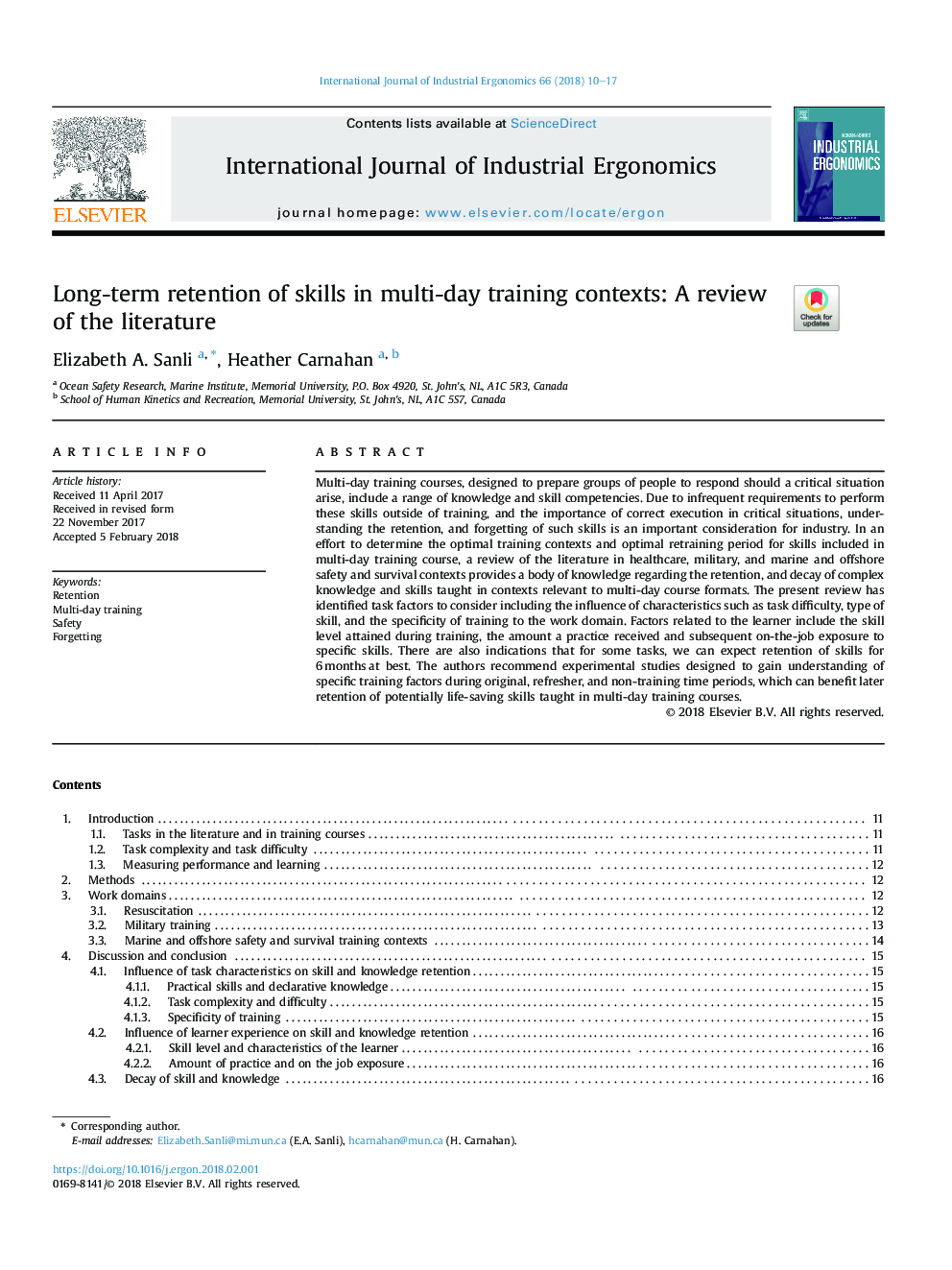| Article ID | Journal | Published Year | Pages | File Type |
|---|---|---|---|---|
| 7530457 | International Journal of Industrial Ergonomics | 2018 | 8 Pages |
Abstract
Multi-day training courses, designed to prepare groups of people to respond should a critical situation arise, include a range of knowledge and skill competencies. Due to infrequent requirements to perform these skills outside of training, and the importance of correct execution in critical situations, understanding the retention, and forgetting of such skills is an important consideration for industry. In an effort to determine the optimal training contexts and optimal retraining period for skills included in multi-day training course, a review of the literature in healthcare, military, and marine and offshore safety and survival contexts provides a body of knowledge regarding the retention, and decay of complex knowledge and skills taught in contexts relevant to multi-day course formats. The present review has identified task factors to consider including the influence of characteristics such as task difficulty, type of skill, and the specificity of training to the work domain. Factors related to the learner include the skill level attained during training, the amount a practice received and subsequent on-the-job exposure to specific skills. There are also indications that for some tasks, we can expect retention of skills for 6â¯monthsâ¯at best. The authors recommend experimental studies designed to gain understanding of specific training factors during original, refresher, and non-training time periods, which can benefit later retention of potentially life-saving skills taught in multi-day training courses.
Keywords
Related Topics
Physical Sciences and Engineering
Engineering
Industrial and Manufacturing Engineering
Authors
Elizabeth A. Sanli, Heather Carnahan,
